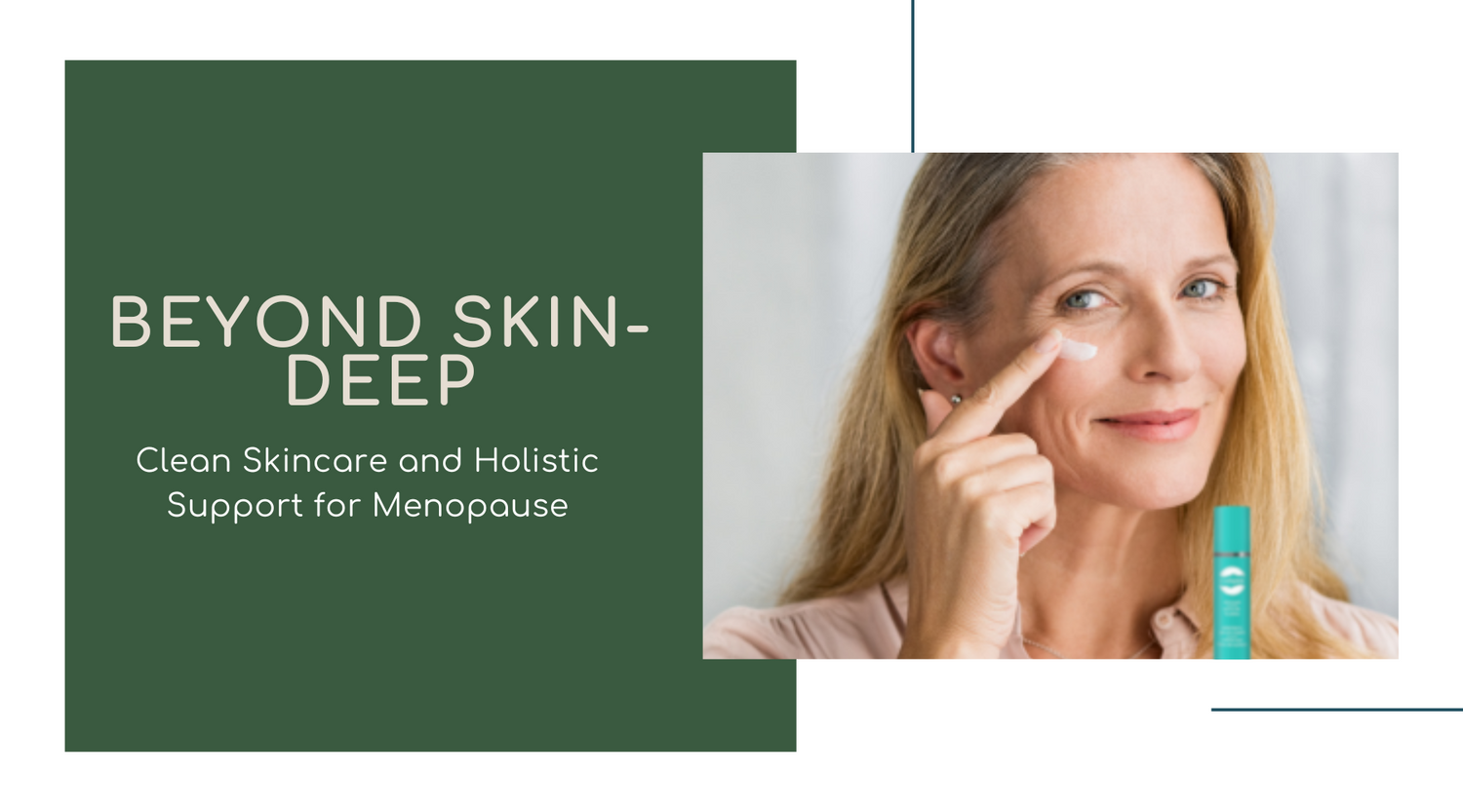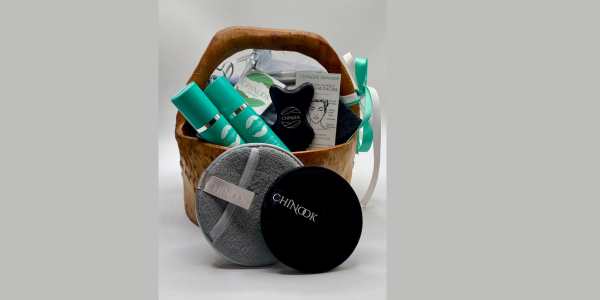As we age, our skin goes through a variety of changes due to both intrinsic factors (natural aging) and extrinsic factors (like sun exposure, lifestyle, and stress). Here’s a breakdown of what happens:
Natural Aging:
- Collagen and Elastin Breakdown: Collagen, which provides structure, and elastin, which gives skin its bounce, decrease as we age. This leads to sagging skin, wrinkles, and fine lines.
- Thinner Skin: The epidermis (outer layer) becomes thinner, making the skin more fragile and prone to damage.
- Slower Cell Turnover: Skin cell regeneration slows down, leading to a dull complexion as dead skin cells accumulate. (From 28 days up to 40-50 days as we age)
- Less Oil Production: Sebaceous glands produce less oil, making the skin drier and more prone to flakiness and irritation.
- Pigmentation Issues: Age spots, uneven skin tone, and hyperpigmentation may appear due to a lifetime of sun exposure.
- Reduced Blood Flow: With age, there’s a decline in blood flow to the skin, leading to a paler, less vibrant complexion.
The Effects of Stress:
Chronic stress accelerates skin aging and triggers a range of skin issues:
- Cortisol Production: Stress increases cortisol levels, which can break down collagen and elastin, speeding up the formation of wrinkles and sagging.
- Acne Flare-ups: Stress triggers an increase in oil production, leading to clogged pores and breakouts.
- Inflammation: Stress contributes to skin inflammation, worsening conditions like rosacea, psoriasis, and eczema.
- Dehydration: Stress can lead to dehydration by weakening the skin’s barrier, causing dryness and sensitivity.
- Delayed Wound Healing: Stress reduces the skin’s ability to repair itself, slowing down wound healing and making skin more vulnerable to damage.
Hormonal Changes:
Hormones also play a significant role in skin health, especially during periods of hormonal fluctuations:
- Menopause and Estrogen Decline: As estrogen decreases during menopause, so does collagen production, leading to thinner, less elastic skin. This drop also reduces skin hydration.
- Hormonal Acne: Fluctuations in hormones like androgens can lead to increased oil production and acne, particularly around the jawline and chin.
- Pregnancy: Hormonal changes during pregnancy can cause pigmentation changes, leading to melasma (dark patches on the face).
- Perimenopause: Hormonal imbalances can trigger more frequent breakouts, skin sensitivity, and noticeable dryness.
So how can you best care for your skin as you age, and deal with life’s inevitable stresses?
Supporting your skin through the natural aging process, hormonal fluctuations, and the effects of stress requires a combination of healthy habits, skincare products, and lifestyle adjustments. Here are some strategies to help your skin adapt and thrive through these changes:
1. Hydrate, Hydrate, Hydrate
- Drink plenty of water: Hydrated skin is more resilient and elastic, helping reduce the appearance of fine lines and maintaining a healthy barrier function.
- Use moisturizing products: Look for skincare products rich in hydrating ingredients like hyaluronic acid, glycerin or propanediol, and fatty acids. Chinook Skincare’s Elderberry Serum Cream is a great option, as it contains nourishing and hydrating ingredients like tremella snow mushroom, olive squalane, organic cucumber, lavender, and rose hydrosols.
2. Incorporate Antioxidants
- Eat an antioxidant-rich diet: Foods high in antioxidants like berries, leafy greens, and nuts help protect the skin from oxidative stress and free radicals, which accelerate aging.
- Topical antioxidants: Use skincare products that contain vitamins C and E, or botanical extracts like Maple bark, or niacinamide to help protect against environmental stressors and support collagen production.
3. Support Collagen Production
- Collagen-stimulating ingredients: Look for products with ingredients like retinoids (vitamin A), peptides, and growth factors, which help promote collagen synthesis and repair skin.
- Consume collagen: Adding a collagen supplement or bone broth to your diet may help boost skin elasticity and strength.
4. Manage Stress
- Practice stress-reducing activities: Time in nature, Yoga, meditation, deep breathing, and regular exercise are great ways to lower cortisol levels and reduce stress-related skin issues.
- Sleep: Aim for 7-9 hours of sleep per night to support skin’s natural repair processes. Sleep deprivation leads to a lackluster complexion, more visible fine lines, and dark circles.
5. Hormonal Support
- Balanced skincare routine: During hormonal fluctuations (like menopause or perimenopause), consider adding gentle exfoliation and nourishing serums to manage dryness and breakouts. Products with salicylic acid or lactic acid can help with breakouts, while ingredients like squalane and jojoba oil are great for hydration without clogging pores.
- Consider hormone therapy: For women experiencing major skin changes due to menopause, consulting a healthcare provider about hormone replacement therapy (HRT) or other options may provide benefits for skin health.
6. Protect Your Skin from the Sun
- Daily sunscreen: UV damage is one of the primary causes of premature skin aging, so apply a broad-spectrum SPF of at least 30 every day. There are some great mineral options available if you’re looking for a chemical free sunscreen.
7. Exfoliate Regularly
- Gentle exfoliation: As cell turnover slows with age, regular exfoliation (1-2 times a week) can help remove dead skin cells, promote a brighter complexion, and allow products to penetrate more effectively. Avoid harsh scrubs; opt for mild chemical exfoliants like AHAs (glycolic acid) or BHAs (salicylic acid), or Chinook’s Cleansing sponges made of a velour microfibre for gentle exfoliation.
8. Use Cold-Pressed Oils
Cold-pressed oils retain their nutrients and offer skin more effective moisturization. Oils like seabuckthorn fruit, elderberry, and Abyssinian seed oil are rich in essential fatty acids and antioxidants, helping to nourish, hydrate, and repair the skin. Chinook Skincare’s cold-pressed formulations are perfect for maintaining nutrient-dense skin hydration.
9. Strengthen the Skin Barrier
- Barrier-repairing ingredients: Use products with ceramides, fatty acids, and cholesterol to reinforce the skin’s natural protective barrier, which tends to weaken with age.
- Avoid over-washing: Harsh soaps and over-washing can strip the skin of natural oils, further damaging the barrier. Stick to gentle cleansers, like Chinook Skincare’s Superfruit Gel-to-Milk Cleanser, which cleanses without drying.
10. Facial Massage & Tools
- Facial massage: Gently massaging your face can stimulate circulation, promote lymphatic drainage, and support skin elasticity.
- Tools: Using tools like jade rollers, gua sha stones, or microcurrent devices can help improve blood flow and collagen production, reducing puffiness and enhancing skin firmness.
11. Clean Natural Ingredients
- Choose non-toxic, natural products: Harsh chemicals and synthetic ingredients can irritate aging or sensitive skin, cause endocrine disruption, and may be toxic to the environment.
- Tip: Use the YUKA App to check your skincare by scanning the barcode and it will rank the ingredients out of 100 for how good they are for you. By educating yourself you can make the best decisions for your skin and that work for your lifestyle. If you’re looking for a clean alternative, both of Chinook Skincare’s products score a perfect 100/100!
By incorporating these strategies into your skincare routine and overall lifestyle, you can better support your skin through the changes that come with aging, stress, and hormonal shifts.





